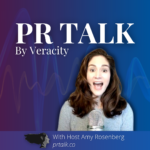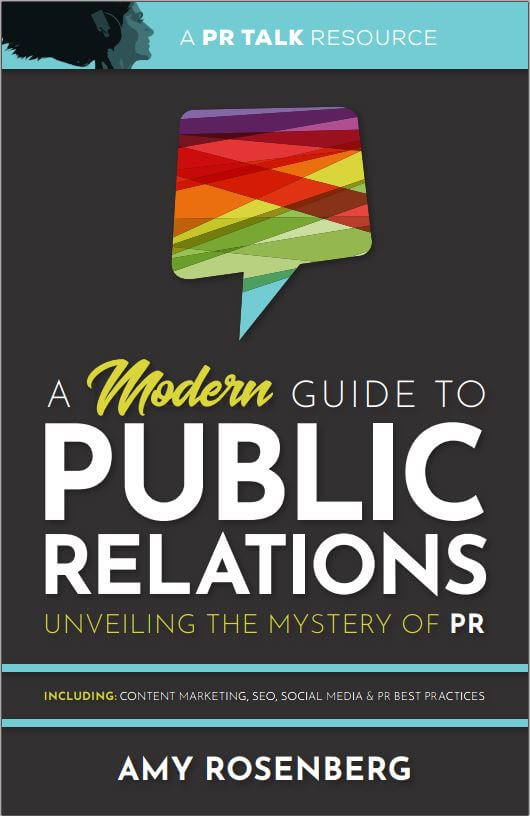FAQ
There are some questions that we are frequently asked. We plan to add to this post on a regular basis. If you have a question about public relations, digital PR or agency life, ask away!
What is PR?
PR stands for: Public Relations. In a general sense it is how an entity relates to the public. PR encompasses many marketing disciplines including media relations, internal communications, community relations, crisis communications, thought leadership and SEO PR.
What is Digital PR?
Digital PR or SEO PR, raises a client’s position online by targeting outlets and opportunities beyond conventional media. Some assume that Digital PR is just another term for link building. While this technique is certainly one tactic in the arsenal, that narrow view often ignores the holistic strategy directing a PR professional’s outreach efforts. When done well, Digital PR not only improves a company’s SEO presence but also increases brand mentions and exposure.
How Important Is Having the Right Contacts in PR?
As Amy says in her book A Modern Guide to Public Relations:
“If you happen to be searching for a PR vendor one day and a candidate can only brag about the relationships they have, run the other way. If they are bragging about their relationships, one would wonder if they do any actual work.”
Having contacts is nice, but having the right process and understanding what those contacts need is more important.
What is Thought Leadership?
Thought leadership is positioning companies and their teams as leaders to maintain or strengthen reputations. It can take many forms including guest articles, blog posts, awards programs, speaking engagements and press interviews. Thought leadership can also support other sales and marketing goals by increasing visibility, building and maintaining trust, and shortening sales cycles.
How Do I Become a Thought Leader?
The main way to become a thought leader is to share your expertise with others. How you share that knowledge can come in a variety of forms including speaking at events and conferences, writing articles, making media appearances, being featured on podcasts, tv or radio programs, etc.
Reason to strive to be a thought leader include:
- It increases business visibility,
- Builds & maintains trust with your audience,
- Shortens sales cycles,
- Supports other marketing goals
How Do I Earn Links with PR?
Just doing good PR should earn you media mentions that may, or may not, include a link to your website. The reason you would want links is that historically links from high authority websites (like media sites) are a Google ranking factor. Earning those links (or even mentions without links) can go a long way in helping your SEO efforts.
There are many ways to earn links through PR including prioritizing outlets that provide links, using content marketing strategies and tactics, and gaining event speaking engagements. Read more about Digital PR Tactics and listen to experts Michael Cottam and Rand Fishkin talk about the value of media links.
Should I Start a Podcast?
There are many pros and also quite a few cons to starting a podcast. Podcasts certainly are not a new communications channel, but they do seem to be having a bit of a renaissance with more listeners, shows and episodes than ever before. Of course you have to weigh the costs/benefits for yourselves, but here are a few things to think about:
- Does my target audience(s) listen to podcasts or can they be persuaded to listen?
- How much time do we have to dedicate to creating a podcast?
- Am I willing to commit to podcasting for an extended period of time?
- What is the goal of my podcast?
Here are some of the pros and cons to consider:
Pros
- Great way to fuel a content marketing strategy – not only will you have a podcast to share, but a good marketer will also publish a corresponding blog post, potentially a video version and audiograms, which is all social media content too.
- Can be a more approachable medium than video and easier than writing
- Helps establish the host (both an actual human host and the organization that is hosting or produce the podcast) as a thought leader
Cons
- Time and money. Podcasts, or at least good podcasts, take some time and money. We shared a bit of insight on what it cost us at the end of What You Need to Start a Podcast.
- Lost opportunities. As mentioned above, podcasts take time and money. Could those resources be used in a better way?
Our advice is to start by being a guest on other podcasts to see if the medium is a fit for you.
Should I Use a PR Wire?
Like most things in life…it depends. But most of the time our answer is no. Here are the circumstances that it may make sense to use a PR distribution service (which is a tools to get something on the Wire, see PR dictionary):
- You are required to make the news public for SEC (or other entity) requirements.
- You have really BIG news that may actually get picked up
- You might get lucky
See Who Needs PR Distribution for more.
How Do I Measure the Success of PR?
The first key to measuring success is understanding what you want to measure. Start with your ultimate business goals and see how closely you can get to understanding the key performance indicators (KPIs) that PR impacts.
Classic PR placement measurements like impressions, share of voice, calculated publicity value, etc. are good at understanding the reach of your efforts and can be used as a comparison to other PR and marketing work.
However, to really understand the impact of PR you must dig deeper. Using digital marketing KPIs like unique visitors/users, traffic to specific pages or via tracking URLs, share of search traffic/results, lead generation and ultimately sales will help you get closer to understanding the impact of public relations.
This often takes extra work and may need to involve leadership and/or finance teams. Listen to the PR Talk podcast episode Stakeholder Engagement with Ira Gostin for more.
How Much Does PR Cost?
Another answer where it depends comes to mind…however that wouldn’t be very helpful, so here are some scenarios:
$9.99 – you can buy A Modern Guide to Public Relations and do it yourself (really $9.99 plus your time)
$50-$175/hour – freelance rates vary significantly and certainly go higher than $175, but if you are looking to pay a professional hourly, I’d expect them to be at least $100/hour.
$2,500 – $10,000 – for a local PR project
$25,000+ for a national PR project
$1,500 – $3,000 per month for a freelancer
$2,500 – $5,000 for a small firm
$5,000 – $10,000 per month for a boutique or medium-sized firm
$10,000+ per month for a bigger firm
*Of course these are just guidelines that I have seen over the years, there are all sorts of people, firms and partnerships.









